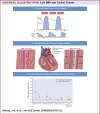Eddie.
Member
Thanks guys for keeping the thread alive.
IMO that diastolic looks dangerous, i would drop the telmisartan completely. Nebivolol is ok if you're dealing with high RHR but taking a blood pressure medicine proactively while it might cause you problems by itself i don't think it's a good idea.
Yes i'm taking 500-750mg before bed but it doesn't reduce my BP. I had the same BP before i started magnesium. My arms are 18,5-19in but i've bough an extra XXL cuff which goes a long way. I think this could be an issue if you're fat. My arms are lean and veiny, i think it's not that difficult to find the pulse and get a right measure.
I'm already doing salt caps, but it only seems to temporarily increase it, and fuck, it makes me retain much more subcutaneous water.
That's my BP right now, but it shouldn't be an issue, because from what I understand, what is meaningful is the MAP, which is at 64.
View attachment 298580
By the way, it’s because I’m taking 5mg of Nebivolol in the morning and 40mg of Telmisartan in the evening. I’m doing it to prevent LVH, and without Nebivolol, Trestolone makes my resting HR shoot up to almost 90-100.
Maybe I should lower the Telmisartan dose to 20mg instead.
IMO that diastolic looks dangerous, i would drop the telmisartan completely. Nebivolol is ok if you're dealing with high RHR but taking a blood pressure medicine proactively while it might cause you problems by itself i don't think it's a good idea.
R u taking magnesium? That will lower your blood pressure and you might be sensitive to it.
Also if you have big arms those blood pressure machines can be off by as much as 30 points.
Yes i'm taking 500-750mg before bed but it doesn't reduce my BP. I had the same BP before i started magnesium. My arms are 18,5-19in but i've bough an extra XXL cuff which goes a long way. I think this could be an issue if you're fat. My arms are lean and veiny, i think it's not that difficult to find the pulse and get a right measure.



